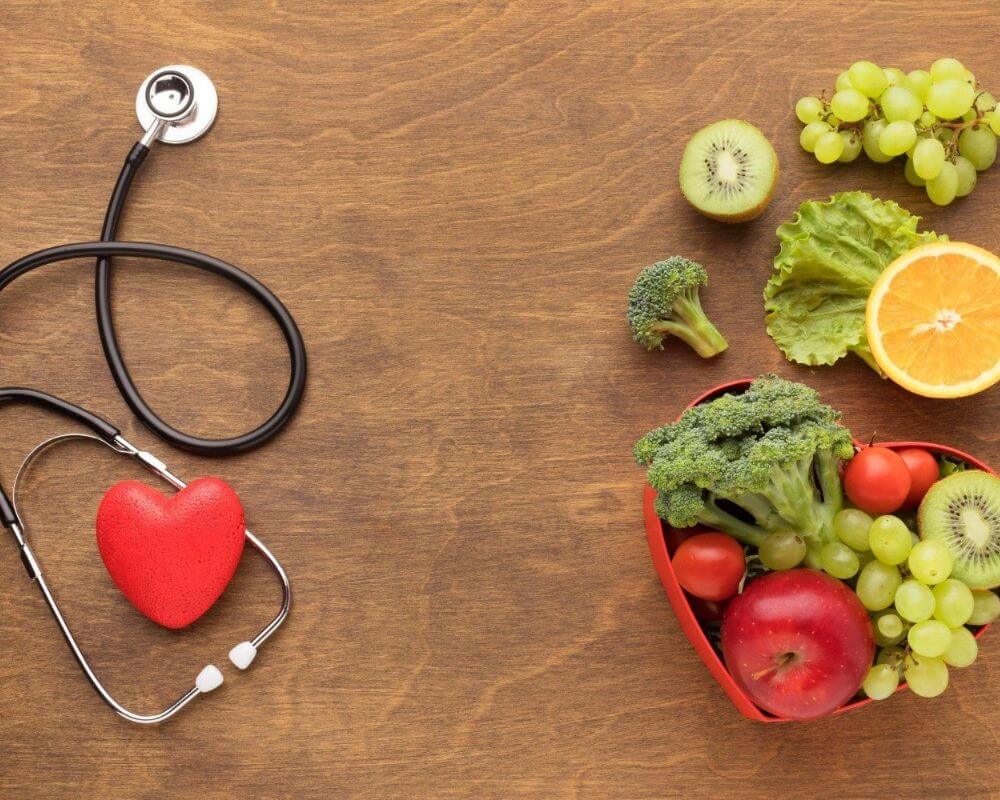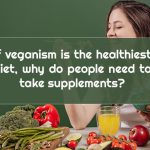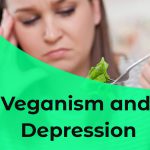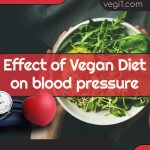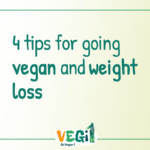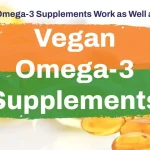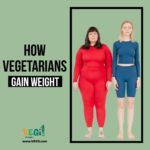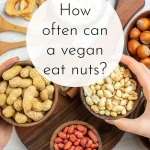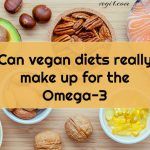How Long Does It Take To Lower Cholesterol On A Vegan Diet?
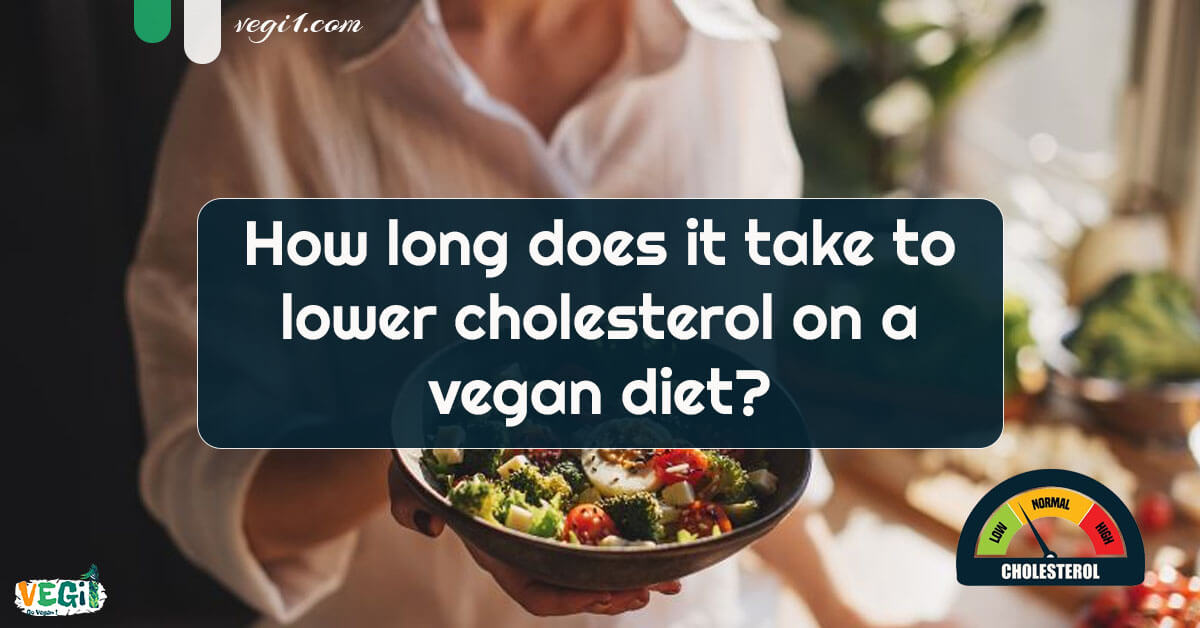
If you’ve been unlucky to see high cholesterol in your test result, or you are just worried that you might have high cholesterol because you eat a lot of fast food, then you are in the right place.
In this article, we will talk about cholesterol, how it works, and how a vegan diet can be beneficial for people with high cholesterol.
A vegan diet is gaining popularity because of its health benefits. People who are prone to high cholesterol levels should consider going on a vegan diet as it is plant-based and low in cholesterol. This has been scientifically proven by many research studies and experiments over the past four decades.
High cholesterol is associated with heart attacks and strokes. That’s why everyone should keep an eye on their cholesterol levels. People over the age of 20 should get their cholesterol checked every 4 to 6 years, based on the recommendation from The American Heart Association. If you have high blood pressure, diabetes, or a family history of heart disease, you may need to get your cholesterol checked more often.
So whether you see high cholesterol in your test result or you want to prevent it from happening, you should consider a vegan diet. It is important to work with your healthcare provider throughout the process of making dietary changes. They can help you develop a safe and effective plan, monitor your progress, and adjust your medications as needed.
In this article you will read:
What Is Cholesterol?
Cholesterol consists of fat molecules attached to a protein, which move through the blood. They are not all bad, in fact, our body needs cholesterol to function properly. It is naturally made in the liver but is also found in animal-based foods. It provides a variety of benefits, like helping to build cells, making vitamin D, and a range of hormones.
So it’s normal to have cholesterol in the blood, the problem is having too much of it, which ultimately leads to diseases of the heart and blood vessels. The primary reason for high cholesterol is the consumption of too much saturated fat which is found in many animal products like meat, eggs, dairy, processed foods, and fatty spreads. This is why a vegan diet can help to lower the cholesterol levels.
Other reasons can increase cholesterol, like Smoking, drinking alcohol, and not being physically active. Some health conditions may also lead to high cholesterol, such as an underactive thyroid, type-2 diabetes, liver disease, kidney disease, and certain medications.
Another unfortunate factor that causes high cholesterol is Genetic Predisposition. Genetics plays a significant role in determining cholesterol levels, so it is possible to inherit high cholesterol even if you have a healthy diet and lifestyle. While you can’t change genetic factors, you can change your diet and the amount you exercise to lower your cholesterol level.
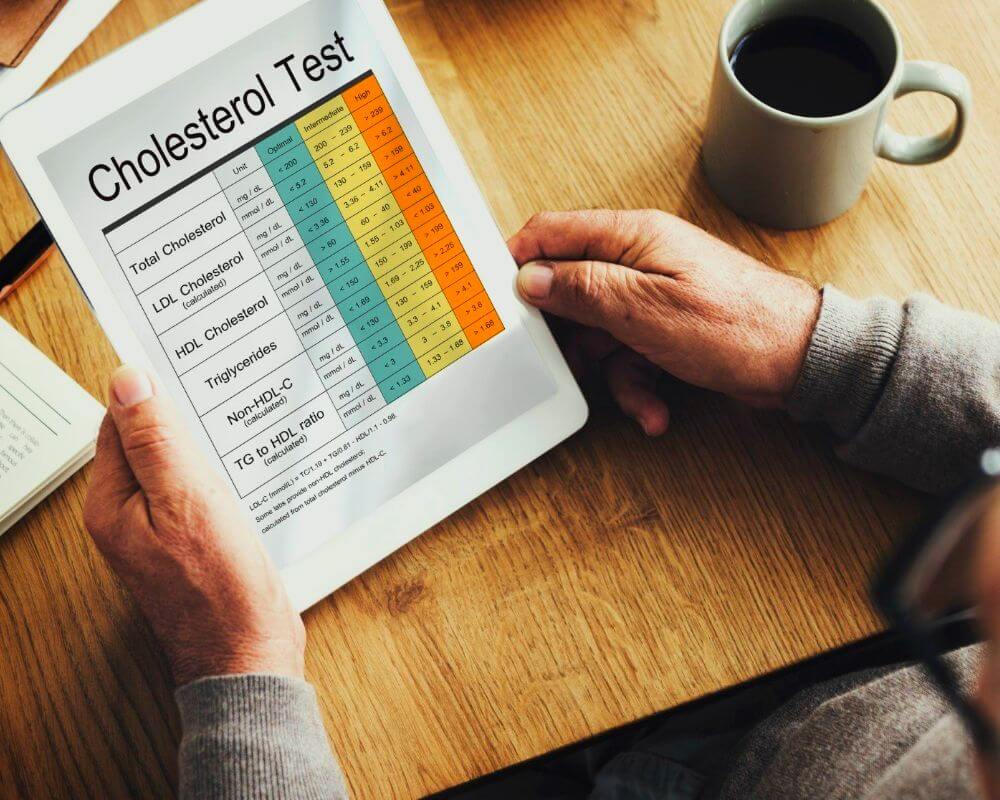
What’s The Big Deal With Having High Cholesterol?
You might ask “What’s the worst thing that can happen to a person with high cholesterol?”. Well, it tends to be deposited on the artery walls, which can narrow or block the blood flow to the heart and brain. A heart attack occurs when the blood flow to the heart is blocked, and a stroke occurs when the blood flow to the brain is blocked. Both heart attacks and strokes are serious medical emergencies that can lead to death or disability.
What Is A Vegan Diet?
A vegan diet consists of only plant-based products and byproducts like plant-based protein, fruits, vegetables, herbs, spices, plant-based oils, etc.
Plants are packed with soluble fiber, which helps your body keep its cholesterol in check. Soluble fiber acts like a sponge, soaking up cholesterol and carrying it out of your body before it can do any damage. Vegan foods are very low in saturated fat and free of cholesterol.
The vegan diet eliminates the consumption of all animal products and byproducts like meat, lard, seafood, dairy and eggs, animal-based fats and oils, etc.
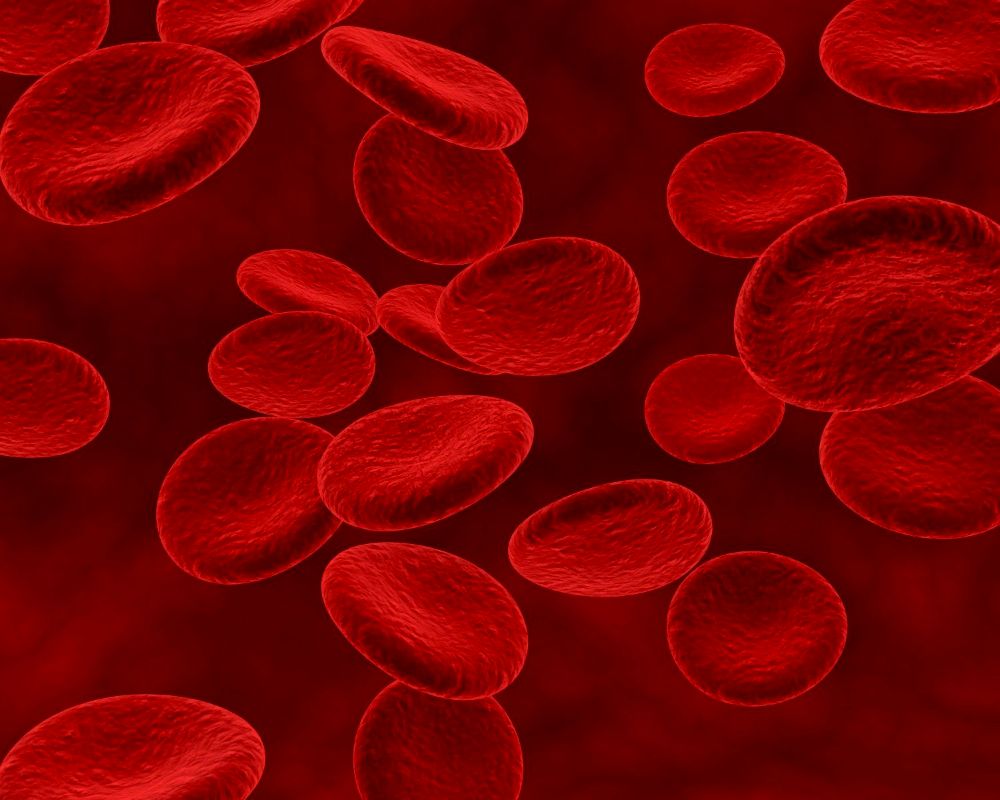
The Science Behind Lowering Cholesterol With A Vegan Diet
Let’s review some research studies and see what the experts say about lowering cholesterol levels with a vegan diet.
Researchers and doctors from all health organizations agree that eating too much saturated fat can raise cholesterol in your body and increase your risk of heart disease.
A recent study called the EPIC-Oxford study compared vegans to meat-eaters with healthy lifestyles. The results showed that vegans had lower cholesterol levels than meat-eaters, both men and women.
Vegans also had lower levels of a protein called apolipoprotein B, which is thought to promote fat deposits in the arteries. The researchers believe that vegans have lower cholesterol levels because they tend to have a lower body mass index, eat less saturated fat and more polyunsaturated fat, and consume more fiber.
Another study found that people who switched to a plant-based diet for a few weeks dropped their cholesterol levels by 10%, compared to people who kept eating meat. Dr. Ruth Frikke-Schmidt, the lead author of this study, said that This is equivalent to the effect of about one-third of the cholesterol-lowering medications in the market, and those who continue this diet for five years can reduce the risk of cardiovascular disease by 7%. These results are similar across ages, genders, and races.
How Long Does It Take To Lower Cholesterol With A Vegan Diet?
It depends on several variables, including your treatment program, the types of food in your diet, your genetic tendencies, and how high your cholesterol levels are to begin with.
A study at the University of Toronto found that people who ate a plant-based diet with foods that are known to lower cholesterol dropped their LDL cholesterol by almost 30% in just four weeks! These foods include:
- Barley, oats, beans and other foods high in soluble fiber
- Soy protein
- Seeds such as chia,hemp and pumpkin seeds
- Fresh fruits and vegetables
- Wheat germ, wheat bran, almonds, Brussels sprouts, and other foods containing substances called phytosterols
It’s good to know that many vegans and vegetarians do not need to use prescription chemical drugs (and tolerate their potential side effects) to lower their cholesterol levels. A planned vegan lifestyle can significantly reduce cholesterol in just four weeks.
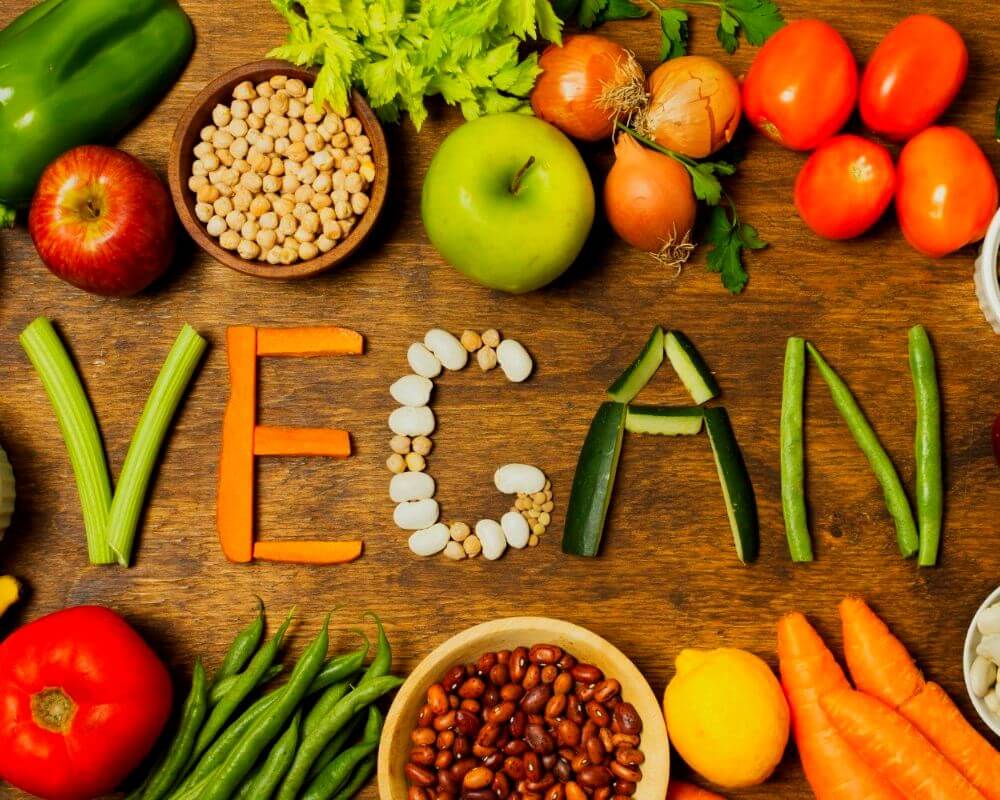
Vegan Foods With Low Cholesterol
If you are planning to become a vegetarian or vegan, first prepare a list of your thirty-day meal replacements and make sure you are getting enough essential nutrients such as iron, iodine, vitamin B12 and vitamin D.
Here is a list of the best plant-based foods to get all the nutrients you need in your diet:
Plant-Based Dairy Products:
Plant-based milks are a good source of calcium, protein, and other nutrients that are essential for strong bones and teeth, muscle growth, and repair, but try to make them at home instead of buying milk from stores.
- Nut milks (almond, hazelnut)
- Rice milk
- Hemp milk
- Flax milk
- Oat milk
- Soy milk
Vegan Alternatives For Omega-3:
Omega-3 fatty acids are good for heart health, brain health, and reducing inflammation.
- Chia seeds
- Ground flaxseeds
- Hemp seeds
- Seaweed
- Soybeans
- Walnuts
Iron Sources:
Iron is good for carrying oxygen throughout the body and is essential for healthy red blood cells.
- Sesame
- Cooked spinach
- Berkeley
- Goji berry
- Sunflower seeds
- Lentils
- Cowpea
- Pumpkin seeds
Vegan Sources For Vitamin B:
Vitamin B is a vital nutrient that helps make red blood cells and protect nerve cells.
- Almond
- Tofu
- Brown rice
- Mushroom
- Avocado
- Legumes and seeds
Do Not Miss Vitamin B12
Vitamin B12 is a nutrient that is essential for human health. It is involved in red blood cell formation, DNA synthesis, and nerve function. For vegans, it is important to rely on fortified foods to meet their daily vitamin B12 needs. Many plant-based foods are fortified with vitamin B12, including breakfast cereals, plant milk, and nutritional yeast. Some types of algae, such as nori and spirulina, contain vitamin B12 as well. However, it is important to note that the amount of vitamin B12 in algae can vary depending on the species and how it is grown and processed. If you eat algae, choose a variety of species and check the label to see how much vitamin B12 it contains. If you are pregnant, breastfeeding, or over the age of 50, it is important to consult with a healthcare professional in order to take vitamin b12 supplements.
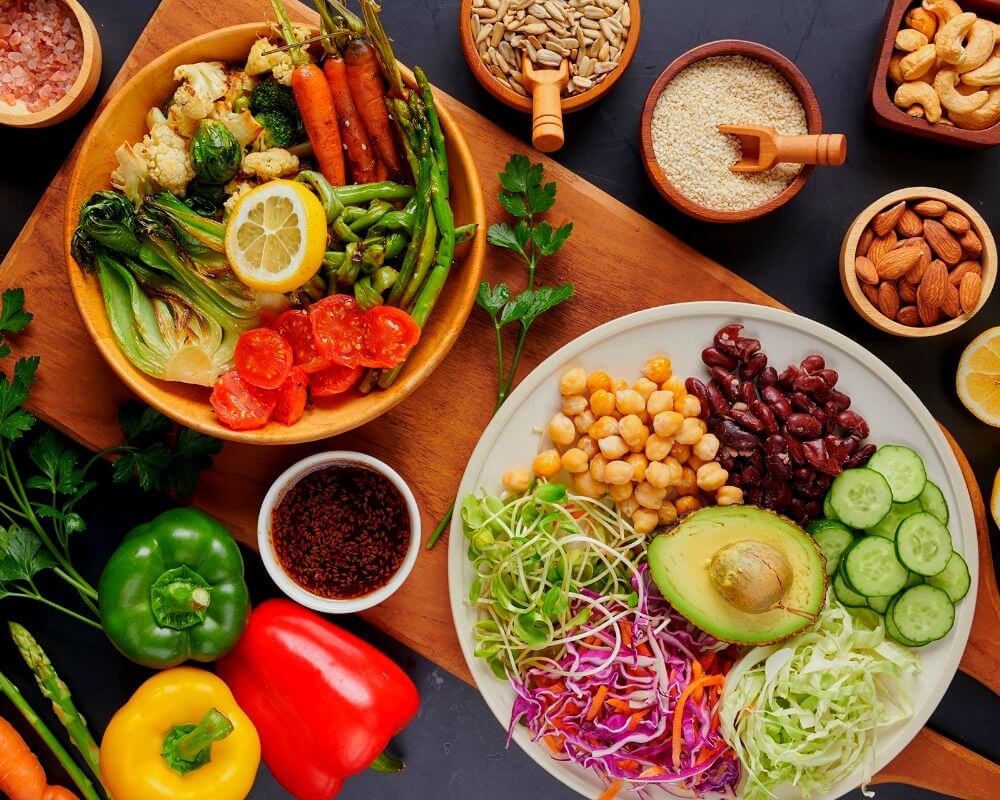
Vegan Foods With High Cholesterol To Avoid
Usually, plant-based diets like vegan and vegetarian diets are low in cholesterol.
But that’s not always the case. Many vegan processed foods, frozen meals and Fried foods, such as vegan meats, sausages, and nuggets, are high in saturated and unhealthy fats. These foods not only help you lower your cholesterol but may even cause high cholesterol themselves, so you should know how to avoid them.
Here is a list of all the plant-based foods that are high in cholesterol:
- Faux meats
- Full-fat vegan dairy products
- Coconuts & Coconut oil products
- Palm oil products
- Shea oil
- Plant-based butter
- Vegan deli meat
- Cashews
- Vegan beef
- Vegan pork
- Vegan chicken
- Avocados
- Vegan desserts
- Macadamia nuts
- Brazil nuts
- Frozen pizzas
- Canned soups
- Sugary drinks
- French fries & onion rings
Vegan Meal Plan & Recipe:
Oil-Free & Low Cholesterol Food Suggestion For Each Meal
Breakfast: Oatmeal , Tofu scramble, Smoothies
- Oatmeal with berries and nuts: Prepare oatmeal with carob or date juice, bananas, berries and some nuts and eat it for breakfast.
- Tofu Scramble: Chop the tofu and then cook it with spices and vegetables. Serve it with your favorite breakfast sides, such as toast, hash browns, or fruit.
- Smoothies: Smoothies are great for getting your daily dose of nutrients. You can easily make a healthy and delicious smoothie with your favorite fruit, a little spinach or almond milk.
Lunch: Salad, Hummus, Vegetable soup
- Oil-free lentil soup: Let the lentils cook for half an hour, you can add your favorite vegetables like carrots and celery. Put two onions with garlic, paprika and salt in a blender and add seasoned onion juice to the pot. This soup is ready in half an hour without oil and is rich in fiber and protein and also has low cholesterol.
- Quinoa salad : Quinoa is a good source of protein and fiber and is also low in cholesterol. Cook quinoa and combine it with vegetables such as cucumbers, tomatoes and red onions, lettuce and fresh basil. Add some pomegranate sauce and lemon juice and decorate it with sunflower seeds and sesame.
- Chickpea stew: This chickpea curry is one of the most delicious dishes. Fry two onions in a pot until golden, then add two spoons of turmeric, salt and paprika to it and add the cooked peas. Let the stew simmer. When it’s ready, you can serve it with rice or bread.
- Sweet Potato Black Beans: Cook sweet potatoes with red bell peppers and black beans in a medium pot, add your favorite spices, and serve with gluten-free bread.
- Chickpea hummus: Cook 500 grams of chickpeas and combine them in a food processor with two tablespoons of tahini, two cloves of garlic, salt and pepper, and olive oil. This dish is prepared very quickly and is the best option for lunch.
Dinner: Lentil tacos, Vegetable lasagna, Chickpea curry
- Lentil taco: Cook lentils with spices, then topped with your favorite taco toppings, such as salsa, lettuce and vegetables.
- Spaghetti with marinara sauce : This Italian dish is a good source of carbohydrates and is also low in cholesterol. Cook spaghetti. Then garnish with your favorite vegan sauce. Fry the mushroom without oil and add it to it, and pour some chopped spinach on the dish.
- Roasted Vegetables: Roasted vegetables are very tasty and have low cholesterol. Preheat oven to 400°F. Then add vegetables such as broccoli, carrots and potatoes with olive oil and salt. Place the vegetables in the preheated oven for 20 to 25 minutes or until they are soft and golden brown.
- Vegetarian burgers: easily make vegetarian burgers at home. Simply combine black beans and quinoa, vegetables and your favorite spices in a food processor. Then make this mixture into candy and cook it on a pan with very little oil or on the grill.
- Tofu Stir-Fry: Put stir-fry tofu with vegetables and sauce in the oven and serve it on rice or noodles for a delicious dinner.
Some Delicious Recipes:
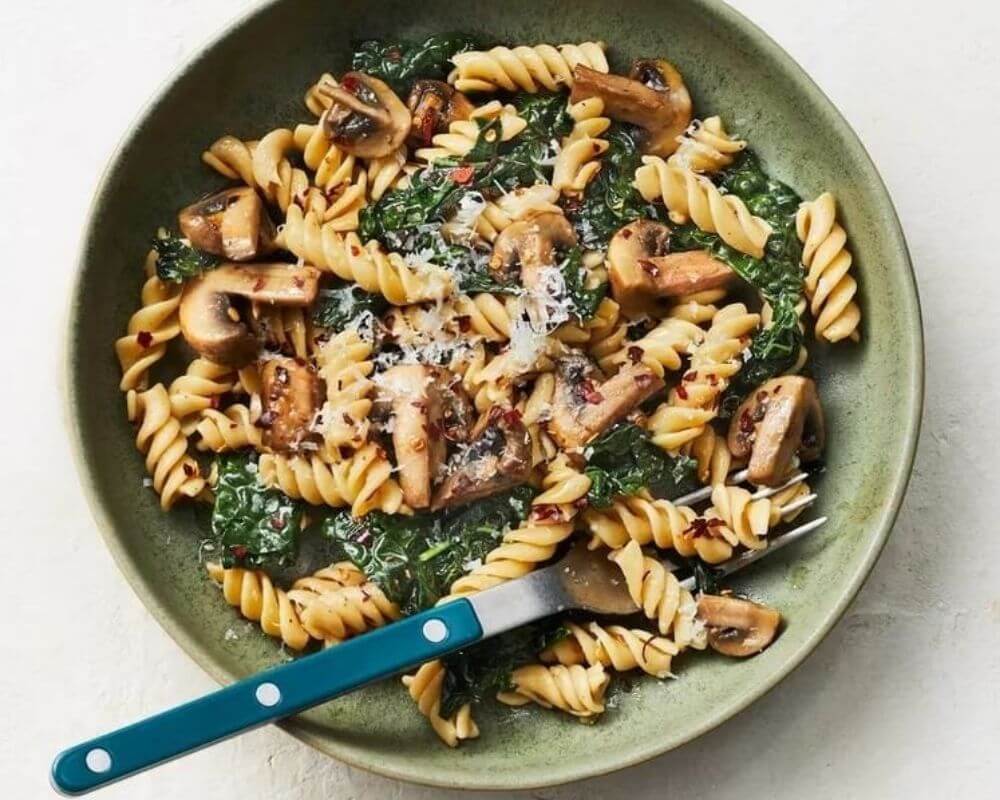
Chickpea Pasta with Mushrooms & Kale
Ingredients:
- 8 ounces of chickpea pasta
- 1/4 cup olive oil
- 2 cloves garlic, minced
- 1/4 teaspoon crushed red pepper flakes (optional)
- 8 cups kale, chopped
- 8 ounces cremini mushrooms, quartered
- 1/2 teaspoon dried thyme
- 1/2 teaspoon salt
Instructions:
- Cook pasta.
- While pasta is cooking, heat olive oil in a large skillet over medium heat. Add garlic and crushed red pepper flakes (if using) and cook until fragrant, about 1 minute.
- Add kale, mushrooms, thyme, and salt to the skillet. Cook, stirring occasionally, until the vegetables are soft, about 5 minutes.
- Drain the pasta and add it to the skillet with the vegetables. Toss to combine and serve immediately.
Tip:
It’s a good recommendation to use chickpea pasta instead of whole-wheat pasta for this dish because it is a more nutritious option. Chickpea pasta is packed with protein, fiber, and nutrients, and some brands provide more than 40% of the daily recommended fiber and 20 grams of protein per serving. It is also gluten-free, making it a good option for people with celiac disease or gluten intolerance.
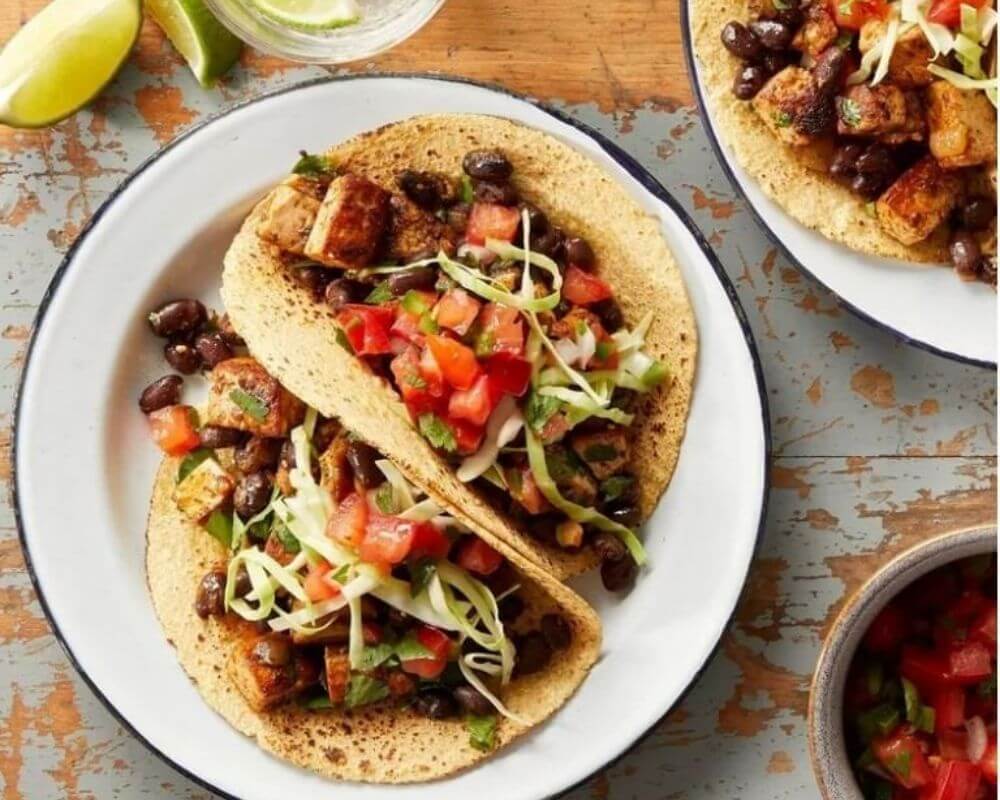
Tofu Tacos
Ingredients:
- 1 block extra firm tofu, pressed and drained
- 1 tablespoon olive oil
- 1 onion, chopped
- 2 cloves garlic, minced
- 1 teaspoon chili powder
- 1/2 teaspoon cumin
- 1/4 teaspoon paprika
- 1/4 teaspoon salt
- 1/4 teaspoon black pepper
- 1/4 cup water
- 12 corn tortillas
- Your favorite taco toppings, such as lettuce, tomato, avocado, salsa, and sour cream (vegan sour cream if desired)
Instructions:
- Preheat oven to 400 degrees F (200 degrees C).
- Crumble the tofu into a medium bowl. Add the olive oil, onion, garlic, chili powder, cumin, paprika, salt, and pepper. Stir to combine.
- Spread the tofu mixture on a baking sheet. Bake for 20 minutes or until the tofu is golden brown and crispy.
- While the tofu is baking, heat the water in a small saucepan over medium heat. Bring the water to a simmer.
- Warm the tortillas in the saucepan with the simmering water, one at a time, for about 10 seconds per side.
- To assemble the tacos, place a spoonful of the tofu mixture in the center of each tortilla. Top with your favorite taco toppings.
- Serve immediately.
Tips:
- For a spicier taco, add more chili powder or cayenne pepper to the tofu mixture.
- If you don’t have a baking sheet, you can cook the tofu in a large skillet over medium heat until golden brown and crispy.
- You can also use whole-wheat tortillas or gluten-free tortillas in this recipe.
- To make this recipe even easier, you can use pre-cooked tofu crumbles. Simply heat the tofu crumbles in a skillet over medium heat until warmed through.

Chickpea & Potato Curry
Ingredients:
- 1 tablespoon oil
- 1 onion, chopped
- 2 cloves garlic, minced
- 1 tablespoon ginger, minced
- 1 teaspoon ground cumin
- 1 teaspoon ground coriander
- 1/2 teaspoon turmeric powder
- 1/2 teaspoon chili powder (optional)
- 1 (14.5 ounces) can of diced tomatoes, undrained
- 1 (15 ounces) can chickpeas, rinsed and drained
- 1 (15 ounces) can of potatoes, diced
- 1 (14.5 ounces) can of coconut milk, unsweetened
- 1/2 cup chopped cilantro
- Salt and pepper to taste
Instructions:
- Heat the oil in a large pot over medium heat. Add the onion, garlic, and ginger and cook until softened, about 5 minutes.
- Add the cumin, coriander, turmeric, and chili powder (if using) and cook for 1 minute more.
- Add the diced tomatoes, chickpeas, potatoes, and coconut milk to the pot. Bring to a boil, then reduce heat to low and simmer for 20 minutes or until the potatoes are tender.
- Stir in the cilantro and season with salt and pepper to taste.
- Serve over rice and enjoy!
Tips:
- For a creamier curry, add more coconut milk.
- For a spicier curry, add more chili powder or cayenne pepper.
- You can also add other vegetables to the curry, such as carrots, bell peppers, or spinach.
- To make this recipe vegan, omit the cilantro and use a plant-based yogurt instead of regular yogurt.
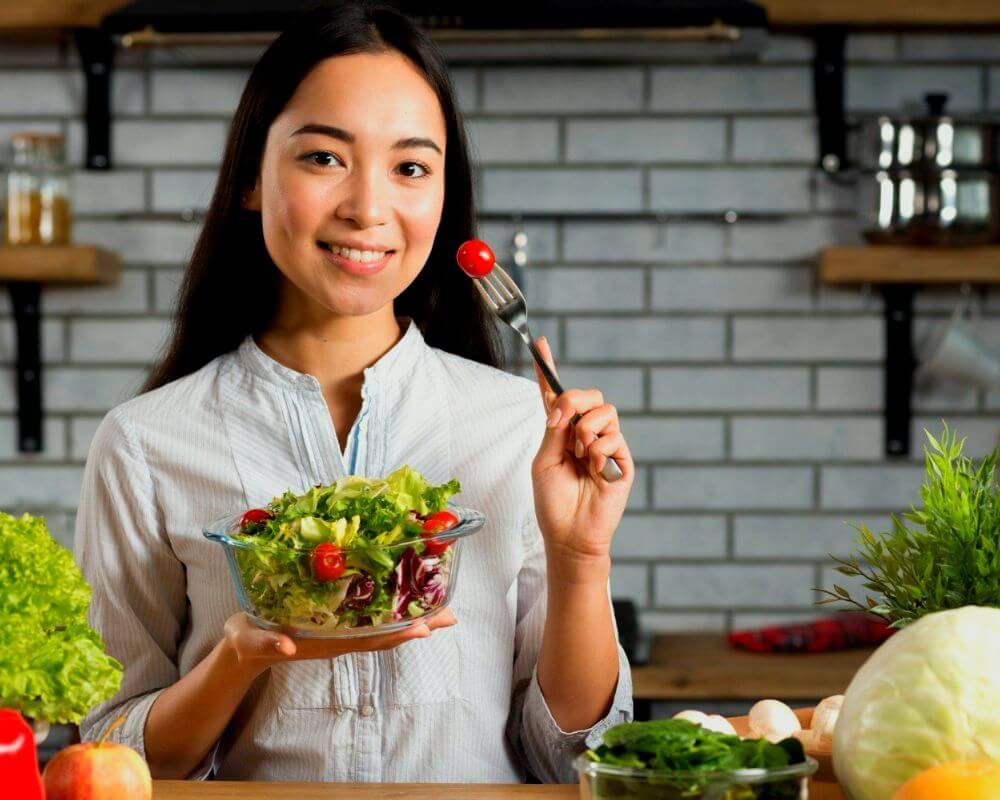
Stories Of The People Who Lowered Their Cholesterol With Veganism
Let’s read about the real-life experience of people who lowered their cholesterol levels with a plant-based vegan diet:
I got all of my blood tests done just before going vegan and again 9 months later. My bad cholesterol, triglycerides, and blood pressure had fallen from dangerously high levels to near normal. The doctor was shocked and asked me if I’d been taking medications. No, I said, I just went vegan! Matt Sapero – Quora
Honestly, cutting meat out of my diet has been pretty amazing. I’ve been losing weight, feel better, and know that I’m lowering my cholesterol (the initial reason for going towards vegetarianism), and I really do feel guilty participating in factory-farmed agriculture so it alleviates a little of my guilt there. Ricardocaliente – Reddit
I switched to a whole food plant-based diet 18+ months ago (for a neurological problem), and as a bonus, my LDL went from 160s to 40s in less than 3 months. Moschocolate1 – Reddit
I went vegan last May because I was diagnosed with high cholesterol. I watched the documentary Game Changers on Netflix and decided to give the plant-based diet a try. After about 3 months of going vegan, my cholesterol was back in the normal range and I lost 20 pounds. I recommend the app The Daily Dozen if you’re thinking about giving it a try! At the end of the day, eat what’s best for you. Going vegan may not be the best choice for everyone, and that’s okay, but it truly has made a difference in my life. ness-writes – Reddit
Conclusion
If you are looking for a way to lower your cholesterol levels, a vegan diet may be a good option for you. Vegan diets are naturally low in saturated fat and cholesterol, and they are high in soluble fiber, which can help to lower cholesterol levels. By following the tips above, you can create a vegan diet that is both delicious and nutritious.
If you are consistent with your vegan diet, you should start to see a decrease in your cholesterol levels within a few weeks or months. However, it is important to note that everyone is different, and some people may see results sooner or later than others. It is also important to talk to your doctor regularly to monitor your cholesterol levels and make sure your diet is working for you.


